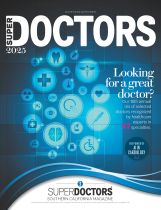ASRM Office of Public Affairs (
ASRM)
October 20 , 2014
Today, at the 70th Annual Meeting of the American Society for Reproductive Medicine, researchers from the Harvard School of Public Health and Massachusetts General Hospital present their findings that the consumption fruits and vegetables with high levels of pesticide residue can affect sperm quality, while IVF fertilization rates are better for those men consuming more fruits and vegetables over all.
In a prospective cohort study, 155 men seen at the Massachusetts General Hospital fertility center between April 2007 and June 2012 completed a food frequency questionnaire. The different fruits and vegetables reported in their diets were noted for having high or low pesticide residue based on USDA reports. Each participant's intake of pesticide residues was calculated and the range of intake was divided into quartiles.
The men's total intake of fruits and vegetables (FVs) and of low-residue FVs was found to be unrelated to semen quality, but men in the top quartile of high-residue FV consumption had a 70% lower motile sperm count and 64% lower number of normally-shaped sperm than men in the lowest quartile of high-residue FV consumption.
When 105 of the participants and their partners were treated with IVF, the researchers found that those who had a greater total fruit and vegetable intake- which included more low-residue FVs- had better fertilization rates with conventional insemination, but not with ICSI.
Paul J. Turek, MD, FACS, President of the Society for Male Reproduction and Infertility, remarked, "Men who want to optimize their reproductive health need to take care take care to choose fruits and vegetables grown with lower levels of pesticides, which are less contaminated. Nutrition is important to good reproductive health, but food that is good for you can contain other substances, not so good for you."

